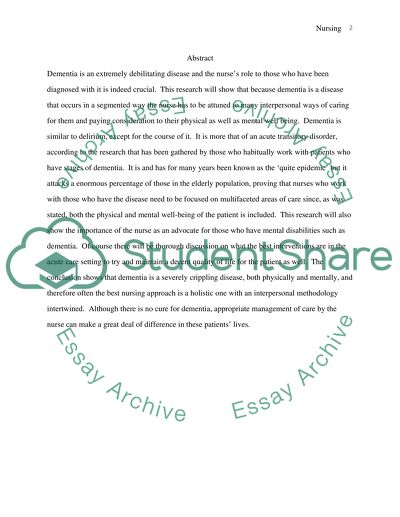Cite this document
(“Dementia as an extremely debilitating disease Essay”, n.d.)
Dementia as an extremely debilitating disease Essay. Retrieved from https://studentshare.org/miscellaneous/1534637-dementia-as-an-extremely-debilitating-disease
Dementia as an extremely debilitating disease Essay. Retrieved from https://studentshare.org/miscellaneous/1534637-dementia-as-an-extremely-debilitating-disease
(Dementia As an Extremely Debilitating Disease Essay)
Dementia As an Extremely Debilitating Disease Essay. https://studentshare.org/miscellaneous/1534637-dementia-as-an-extremely-debilitating-disease.
Dementia As an Extremely Debilitating Disease Essay. https://studentshare.org/miscellaneous/1534637-dementia-as-an-extremely-debilitating-disease.
“Dementia As an Extremely Debilitating Disease Essay”, n.d. https://studentshare.org/miscellaneous/1534637-dementia-as-an-extremely-debilitating-disease.


